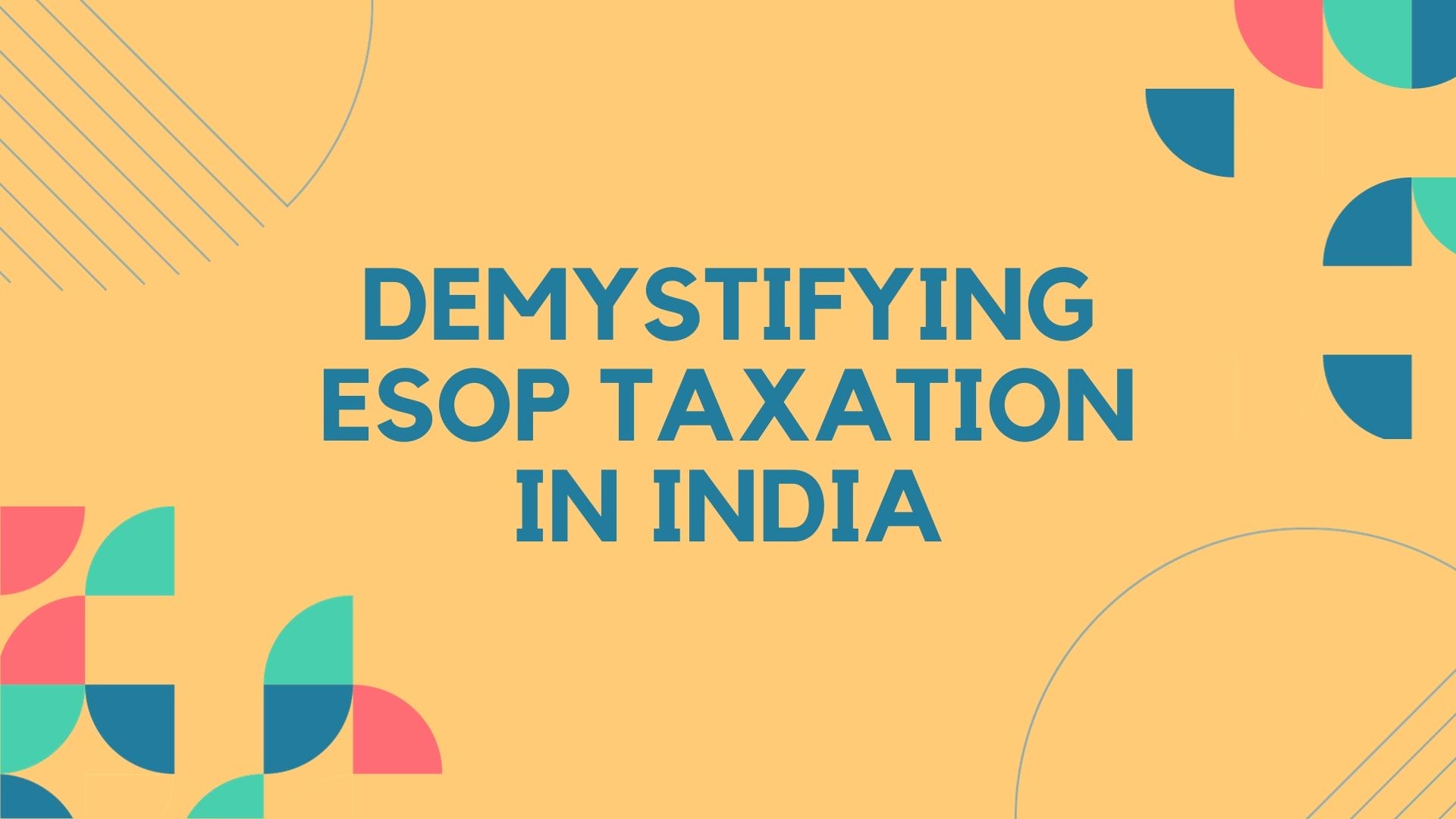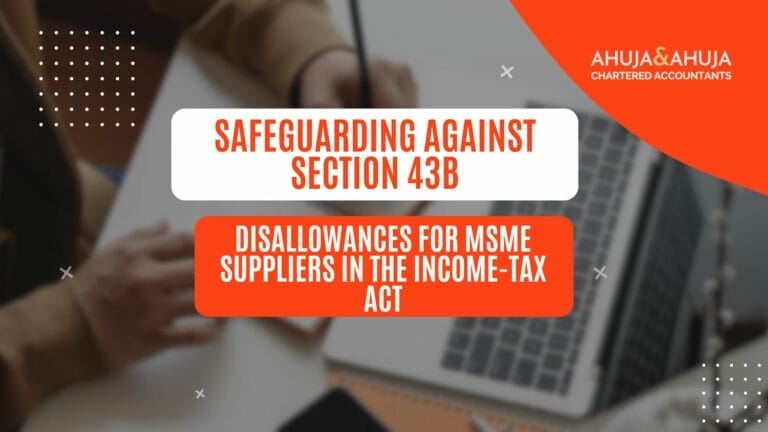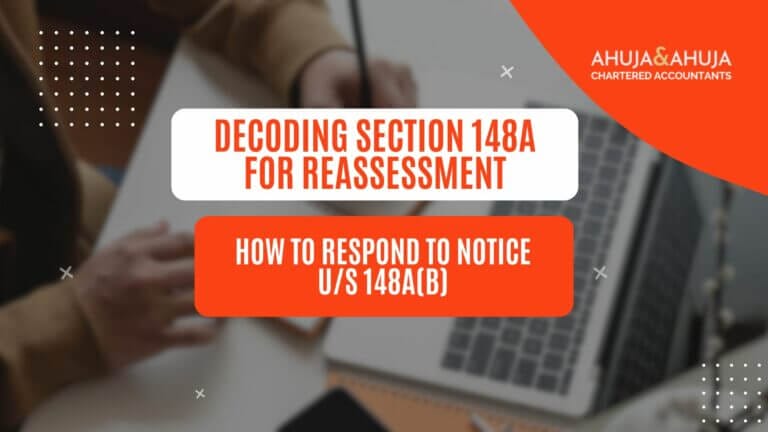Demystifying Taxability of ESOP in India
In today’s competitive business landscape, startups are continually striving to establish unique incentives to attract top talent. A highly popular offering that has garnered significant attention recently is the Employee Stock Option Plan (ESOP). This concept, although prevalent in mature markets like the Silicon Valley for quite some time, has swiftly gained footing in India. Numerous success stories of employees raking in substantial wealth from ESOPs have inspired many to question how these schemes work and more importantly, their tax implications.
An ESOP is an employee benefit plan which gives workers ownership interest in the company. These plans enable companies to retain highly skilled employees by offering them stakes at negligible or reduced prices. The company retains these stocks in an ESOP trust fund until the end of the vesting period or until the employees retire or leave the company.
However, with the perks an ESOP provides, it also brings along the definite certainty of tax implications. So, let’s decode the nitty-gritty of this attractive remuneration scheme and its impact on your wallet.
Understanding ESOPs
To fully appreciate the tax implications of ESOPs, it is essential to understand the key terms associated with them:
ESOP – The Employee Stock Option Plan is an agreement that provides employees the right to own equity shares in the company over a certain period. The specific conditions of this plan are agreed between the employer and the employee.
Grant Date – This is the date when the employer and the employee agree upon providing the option to own shares at a later date.
Vesting Date – This date marks when the employee is entitled to purchase the shares, provided they fulfilled the conditions agreed upon at the grant date.
Vesting Period – The time duration between the grant date and the vesting date.
Exercise Period – Upon vesting of shares, the employee has the privilege (not an obligation) to purchase the equity shares within a specific period, known as the exercise period.
Exercise Date – This is the date when the employee exercises the option to buy shares.
Exercise Price – It is the discounted price at which the employee buys the shares after the vesting period. This amount is usually lower than the prevailing market value.
Once these terms are in your lexicon, it becomes much easier to navigate through the avenues of ESOP taxation, which we will delve deeper into the later parts of this article.
Taxation of ESOPs
ESOPs provide employees with an opportunity to share in the success of the company and reap financial benefits. However, it’s important to understand that tax liabilities are associated with these stock options. Let’s explore how ESOPs are taxed to ensure a clear understanding.
1. Taxation at the Time of Exercise
The first instance of taxation occurs when the employee exercises their option to buy the shares. At this point, the difference between the Fair Market Value (FMV) of the shares on the exercise date and the exercise price is treated as a perquisite and is taxed accordingly. The employer deducts Tax Deducted at Source (TDS) on this perquisite and reflects it in the employee’s Form 16. This amount is also included as part of the employee’s total income from salary in their tax return.
Learn more about income tax return filing here.
A significant development took place with the Budget 2020 amendment. Starting from the financial year 2020-21, employees receiving ESOPs from eligible start-ups are no longer required to pay tax in the year of exercising the options. The TDS on the perquisite is deferred to the earlier of the following events:
- Expiry of five years from the year of allotment of ESOPs
- Date of sale of the ESOPs by the employee
- Date of termination of employment
2. Taxation at the Time of Sale by the Employee
The second instance of taxation occurs when the employee decides to sell the shares acquired through the ESOPs. The difference between the sale price and the FMV of the shares on the exercise date is treated as capital gains and is subject to taxation. The taxation of these capital gains depends on the period of holding the shares. If the shares are sold within one year of the exercise date, it is considered a short-term gain. If sold after one year, it is considered a long-term gain.
Explore our corporate tax services here.
Calculating the taxable amount involves the following steps:
- Determine the FMV of the shares on the exercise date.
- Calculate the difference between the sale price and the FMV on the exercise date.
- The resulting difference is taxed as either short-term or long-term capital gains, depending on the holding period.
It’s important to note that the taxation of capital gains on listed equity shares varies. Long-term gains on listed equity shares are taxed at 10% without indexation, on gains above Rs 1 lakh. Short-term capital gains, on the other hand, are taxed at 15%.
Calculating Taxes
Calculating the tax liability associated with ESOPs involves factors such as the Fair Market Value (FMV) of the shares and the type of shares (listed or unlisted). Let’s explore how these calculations are done.
1. FMV Calculation for Listed Shares
For shares that are listed on a recognized stock exchange in India, the FMV on the exercise date is determined as the average of the opening price and closing price of the shares on that date. If the shares are listed on more than one recognized exchange, the FMV is calculated as the average of the opening price and closing price on the exchange with the highest trading volume.
2. FMV Calculation for Unlisted Shares
In the case of shares that are not listed on a recognized stock exchange, the FMV is determined by a merchant banker on a “specified date.” The specified date refers to the date of exercise of the options or any date within 180 days prior to the exercise date.
Learn more about taxation of expats and international taxation here.
Discover our services for NRI taxation here.
Additionally, it’s important to consider the implications of advance tax on capital gains. Advance tax rules require that tax dues be paid in advance, usually in instalments. While the employer deducts TDS when the options are exercised, if capital gains are earned, it may be necessary for the employee to deposit advance tax. Proper estimation and payment of advance tax on capital gains is crucial to avoid penal interest.
Other Considerations
When it comes to understanding the tax implications of ESOPs, there are a few additional factors to consider. Let’s take a look at them:
1. Short-term or Long-term Gains
The period for which the shares are held plays a crucial role in determining the tax treatment of the gains. If the shares are held for less than one year from the exercise date, they are classified as short-term gains. On the other hand, if the shares are held for more than one year, they are considered as long-term gains. The tax rates applicable to short-term and long-term gains differ.
2. Losses Incurred
In the event that you incur a loss from the sale of ESOPs, you are allowed to carry forward short-term capital losses in your tax return. These losses can be adjusted and set off against gains in future years, potentially reducing your overall tax liability.
3. Listed or Unlisted Shares
The Income Tax Act distinguishes between the tax treatment of listed and unlisted shares. Unlisted equity shares are considered short-term capital assets when sold within 24 months of holding them, and long-term capital assets when sold after 24 months of holding them. For listed equity shares, the period of holding is calculated from the exercise date up to the date of sale.
Learn more about Double Taxation Avoidance Agreement (DTAA) for international taxation.
4. Residential Status
The taxability of your ESOPs may also depend on your residential status. If you are a resident in India, your income from ESOPs and other sources is taxable in India. However, if you are a non-resident or a resident but not ordinarily resident, you may have to pay taxes in the country where you are residing or take advantage of Double Taxation Avoidance Agreements (DTAA) to prevent double taxation.
5. Disclosures
It is important to note that there are disclosure requirements for foreign assets in income tax return forms. If you own ESOPs or RSUs of a foreign company, you may have to disclose these holdings under the relevant sections of your income tax return, particularly Schedule FA. These disclosure requirements typically apply to resident taxpayers.
FAQs (Frequently Asked Questions)
If I exercise ESOPs, what do I receive? What other rights do I have?
When you exercise ESOPs, you typically receive a certificate for the shares, often in paper form. As for other rights, ESOPs may or may not come with voting rights. In certain cases, if you hold a significant percentage of the company’s total shares, you may have voting rights or the employer company may be obligated to make relevant disclosures.
Can I exercise my ESOPs in parts?
Yes, when given the option to exercise your ESOPs, there is usually a specific time period within which you can exercise them. You can choose to exercise them partially during this period. This is especially beneficial if the fair market value (FMV) of the shares varies significantly during the exercise period, as exercising in parts allows you to spread your cost. However, it’s important to note that this strategy is generally more applicable to listed shares rather than unlisted shares.
Conclusion
Employee Stock Option Plans (ESOPs) have become a popular form of employee compensation in India. While they offer valuable opportunities for employees to benefit from their company’s success, it’s crucial to understand the tax implications associated with ESOPs. The taxability of ESOPs depends on factors such as the exercise date, exercise price, FMV of the shares, and the holding period.
By grasping the essential concepts and calculations involved in ESOP taxation, employees can effectively plan their financials and make informed decisions. Consulting with a qualified tax professional is always recommended to ensure accurate tax compliance and maximize the benefits of ESOPs.
Remember, taxation laws and regulations may evolve over time, so staying up-to-date with the latest information from the authorities and seeking professional advice is essential.
Disclaimer
The materials provided herein are solely for educational and informational purposes. No attorney/professional-client relationship is created when you access or use the site or the materials. The information presented on this site does not constitute legal or professional advice and should not be relied upon for such purposes or used as a substitute for professional or legal advice.



